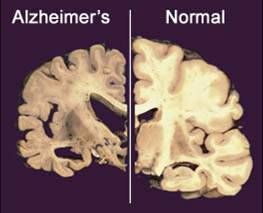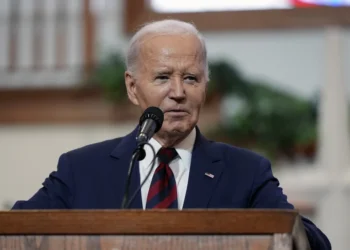That “diversity is our strength” is one of those obvious contradictions that people with common sense instantly recognize as hooey. It is poisonous hooey, mind you. As the British historian Arnold Toynbee said, “Civilizations die from suicide, not by murder.”
They champion diversity not because it is a societal bonding agent but because it is the opposite. A culture made up of discordant groups with little in common — neither religion, habits, nor, especially, language — is no culture. Without these sinews tying it together, a body cannot rouse itself and undertake common endeavors.
A nation of groups is thus an oxymoron. In the best of times, it will be a festering federation. In the worst, it will dissolve into warring tribes.
People used to get this. It was part of our popular understanding.
Toward the end of the 1952 Hollywood classic Ivanhoe, King Richard the Lionheart asks those assembled before him to kneel as Saxons, Normans, Danes, and Jews and then commands them to rise as “Englishmen.” Nobody had to explain why.
Today, we have set up a system in which we seemingly ask Americans to kneel and then rise as members of groups.
This baleful system dates to the 1970s. Activists intimidated the bureaucracy into creating new racial groups, which the Office of Management and Budget did in the 1970s, crafting umbrella clusters such as “Hispanics” or “Asian Americans” to include in the 1980 census. To these were later added groups based on sex, gender, sexual preferences, etc.
Then, these groups were kept apart by pursuing a diversity policy in the schools that deters assimilation. Finally, you instill actual grievances into the members of some groups by teaching them that members of others are oppressing them.
This is the opposite of how things had been done. President John Quincy Adams once reminded a German contemplating immigration that immigrants “must cast off the European skin, never to resume it.” Assimilation — of Germans, Irish, etc., in the East and of Mexicans in the West after 1848 — was one of the purposes of the “common schools.”
The diversity crowd upended that system because it did not like the society that existed, the one that had grown over time. They know that Toynbee was right, and they wanted to assist with the suicide. Ultimately, though, their poet laureate is the German Marxist playwright Bertolt Brecht, whose infamous line went:
“Some party hack decreed that the people had lost the government’s confidence and could only regain it with redoubled effort. If that is the case, would it not be simpler if the government simply dissolved the people and elected another?”
The diversity crowd wants to dissolve the people and elect another. This is not the fevered “replacement theory” that keeps the progressive PR engines running past midnight. Those seeking diversity will work hard enough to carve it out of a monolith.
Of course, Americans, to the diversity mongers, don’t even constitute a nation. America, instead, is an “idea.”
Then-President Joe Biden used this line last July when he addressed the country after dropping out of the presidential race.
“America is an idea, stronger than any army, bigger than any ocean, more powerful than any dictator or tyrant,” he said, mangling his lines again and mispronouncing “army” as “armory,” as if to underscore the urgency to drop out. “It’s the most powerful idea in the world. That idea is that we hold these truths to be self-evident.”
By citing the declaration, whoever wrote Biden’s speech was trying to anchor his point with one of our most enduring myths: that Americans, a people with ancestors in many different lands, and who have no established religion, are held together only by the equality creed in the founding documents.
The idea, it seems, is that members of the different groups can share a belief in equality and are then exempt from casting off their foreign skin and can eschew the collective institutions, habits, and civic engagement that Alexis de Tocqueville said turned foreigners into Americans.
The British writer G.K. Chesterton is sometimes cited by those making the “credal nation” argument. He wrote in the 1920s that America is “the only nation in the world founded on a creed. That creed is set forth with dogmatic and even theological lucidity in the Declaration of Independence.” Former British Prime Minister Margaret Thatcher, too, said, “Europe was created by history. America was created by philosophy.”
More importantly, it was an idea that President Abraham Lincoln expounded upon in his July 10, 1858, speech in Chicago, one of his most memorable and known in fact as “the electric cord speech.”
I have always believed that Lincoln was purposely channeling St. Paul in Galatians when the apostle wrote that, after Christ, one no longer had to be Jewish to be a descendant of Abraham. “And if ye be Christ’s, then are ye Abraham’s seed, and heirs according to the promise,” Galatians 3:29 (KJV).
Similarly, Lincoln noted that many people were no longer directly descended from the men who fought in the Revolution, immigration having been so heavy at midcentury. Here’s what he said:
“They are men who have come from Europe — German, Irish, French, and Scandinavian — men that have come from Europe themselves, or whose ancestors have come hither and settled here, finding themselves our equals in all things. If they look back through this history to trace their connection with those days by blood, they find they have none, they cannot carry themselves back into that glorious epoch and make themselves feel that they are part of us, but when they look through that old Declaration of Independence, they find that those old men say that ‘We hold these truths to be self-evident, that all men are created equal,’ and then they feel that that moral sentiment taught in that day evidences their relation to those men … and that they have a right to claim it as though they were blood of the blood, and flesh of the flesh of the men who wrote that declaration.”
Chesterton, Thatcher, and Lincoln were right. Those who cite these authorities to argue that Americans constitute not a nation but an idea are missing their point.
Lincoln was clearly stating that belief in those moral sentiments gave immigrants an entry into a nation that already existed. Americans were a people, a unit. Both founding documents happen to begin with the word “we,” the declaration expressing what views that nation held and the Constitution making clear that there existed a “We the People of the United States.”
Lincoln was not seeing these Americans as “German, Irish, French, or Scandinavian” whose diversity of views and separateness constituted America’s strength. The men he referred to were not “citizens of the world” but Americans. St. Paul was also clear: “There is neither Jew nor Greek, there is neither bond nor free, there is neither male nor female: for ye are all one in Christ Jesus.”
Some sacred alchemy had worked its magic, and then civic participation, membership in common institutions, the natural adoption of the habits of the American nation, and, very importantly, casting off the old skin, would take care of the rest.
In the case of Chesterton, we have not just the idea of a united people but a people who needed to keep out those whose ideological views represented a threat to the bonds that held the American people together.
Chesterton wrote his ideas down after going to the American Consulate in London to obtain a visa to travel to America. There, “They put in my hands a form to be filled up, to all appearances like other forms I had filled up in other passport offices. But in reality, it was very different from any form I had ever filled up in my life.”
Chesterton tells us that “one of the questions on the paper was, ‘Are you an anarchist?’” The form also asked such questions as, “Are you a polygamist?” and “Are you an atheist?”
“Superficially,” Chesterton wrote, “this is rather a queer business.” Other countries he had visited “did not inquire into my thoughts. … They did not forbid me to hold a theory.”
But this was America, and as Chesterton and others have understood, America is exceptional. In fact, the American system could not function otherwise. Americans were free to think what they wanted, but foreigners requesting the privilege of entry were another matter.
The Constitution, Chesterton averred, “certainly does condemn anarchism, and it does also by inference condemn atheism, since it clearly names the Creator as the ultimate authority from whom these equal rights are derived.”
“Nobody expects a modern political system to proceed logically in the application of such dogmas,” Chesterton wrote, but America had become what it had become already in the 1920s by dancing to a different tune.
The fourth question in the visa form that Chesterton cited was, “Are you in favour of subverting the government of the United States by force?” This goes even further in helping us understand why such banalities as “diversity is our strength” are dangerous to survival.
It brings us even closer to such contemporary matters as the case of Mahmoud Khalil, the Palestinian protester the administration seeks to extradite, and the more than 300 visas that Secretary of State Marco Rubio says he’s already revoked among people abusing their student status to create havoc here.
BECOMING AN AMERICAN: HOW TO FIX THE LEGAL IMMIGRATION SYSTEM
“I don’t care what movement you’re involved in,” Rubio said. “Why would any country in the world allow people to come and disrupt? We gave you a visa to come and study and get a degree, not to become a social activist that tears up our university campuses.”
The way to ensure that America remains strong is to return to the idea of assimilation, and limiting entry to those who want to join this existent nation, and cast off their old skin.
Mike Gonzalez is the Angeles T. Arredondo senior fellow on E Pluribus Unum at the Heritage Foundation and the author of NextGen Marxism: What It Is and How to Combat It. Heritage is listed for identification purposes only. The views expressed in this article are the author’s own and do not reflect any institutional position for Heritage or its board of trustees.

















